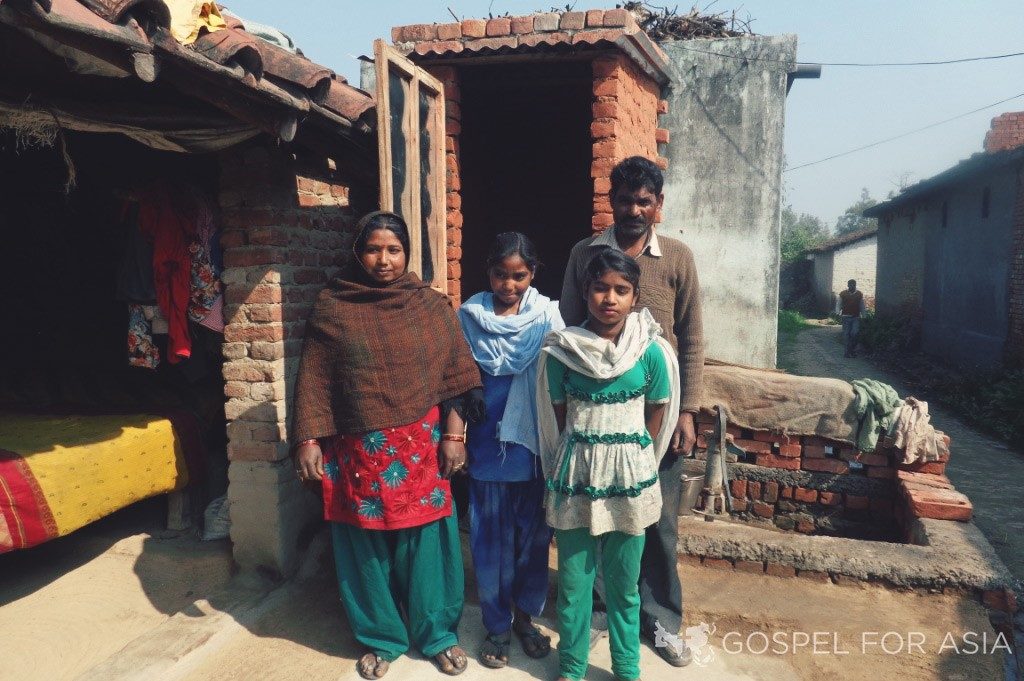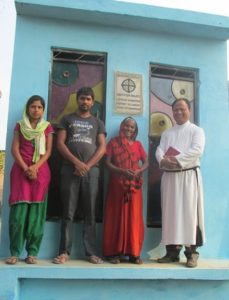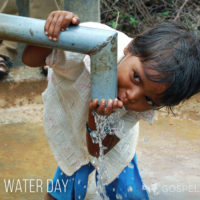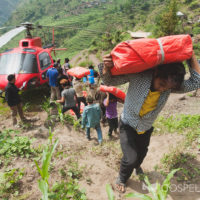The Scandal of Entrenched Paradigms

Open defecation describes the practice of people eliminate their fecal waste in on the ground or in water or at any other place than a toilet or latrine facility designed for that purpose.
No one has an accurate count of people who practice open defecation, but most authoritative sources agree that the number globally is around one billion. One source says the number is closer to 1.1 billion.
Can You Imagine Living Near Open Defecation?
Can you imagine living in a place where open defecation is practiced by 15% of the population? You do. That place is called Earth.
Nonetheless, most people who read this probably don’t know anyone who openly defecates. The effects of living in areas where open defecation is practiced are brutal and deadly. Those of us who live in Open Defecation Free areas should be thankful for sanitary toilets and plumbing. We should also consider becoming more aware of the extent and severity of open defecation in other countries.
Can You Imagine Living Surrounded by Open Defecation?
Imagine, if you can, what it would be like to live in a place where . . .
. . . 524 million people openly defecate every day
. . . 65,000 tons of feces are introduced into the environment every day by half the population
. . . owning a toilet is seen neither a responsibility or an aspiration.
That place exists. It is Asia, Gospel for Asia’s initial and primary area of service. And it is why we have focused so much attention over the years on addressing sanitation issues that plague many of Asia’s cities, towns, and villages as we communicate the love of Christ. Gospel for Asia’s efforts to overcome the open defecation scandal can be seen clearly in our 2016 Special Report that reveals that we were able to install more than 10,500 toilets in needy communities.
 The widespread problem of open defecation in India is one of the reasons why we laud Prime Minister Modi’s Swachh Bharat Abhiyan (Clean India Mission) “to fulfill Mahatma Gandhi’s dream of a clean and hygienic India” by building more than 100 million new toilets in rural areas by 2019.
The widespread problem of open defecation in India is one of the reasons why we laud Prime Minister Modi’s Swachh Bharat Abhiyan (Clean India Mission) “to fulfill Mahatma Gandhi’s dream of a clean and hygienic India” by building more than 100 million new toilets in rural areas by 2019.
Yet, access does not imply usage. According to a report by the BBC, the major obstacle to preventing open defecation is not primarily the need for more toilets. It is the willingness of people to use them.
“Just building toilets is not going to solve the problem, because open defecation is a practice acquired from the time you learn how to walk. When you grow up in an environment where everyone does it, even if later in life you have access to proper sanitation, you will revert back to it.”
Can You Imagine People Preferring to Openly Defecate?
Here are some examples of the difficulty of changing the real scandal – the paradigm or preferring open defecation and the choice to not avail oneself of sanitary facilities provided.
- In Jawda, nobody uses the latrines. “It’s for washing clothes or bathing,” says a woman in a pink-and-black sari, resting on a rope-strung cot in the shade. “We have a lot of open space. Why shouldn’t we use that?”
- Some Asian people express a keen preference for relieving themselves outdoors. It’s healthier, they say. It’s natural and even virtuous. Many rural Indians consider even the most immaculate latrine religiously polluting; a toilet near the home seems more unclean to them.
- Beliefs that feces were impure also caused people to look at the practice of containing feces in the latrine pit in the house as a ‘sin’, because idols and pictures of gods that were revered were kept and worshipped in every house and having toilets within or next to the house was perceived to make the entire house impure.
- 47 per cent of those that defecate in the open say they do so because it is pleasant, comfortable, or convenient.
- In large parts of Asia, open defecation is a well-established traditional practice deeply ingrained from early childhood. Sanitation is not a socially acceptable topic, and as a result, people do not discuss it. Consequently, open defecation has persisted as a norm for many Indians. In addition to tradition and the communication taboo, the practice still exists due to poverty; many of the poorest people will not prioritize toilets and besides, many are living in rented homes without toilets
Can You Imagine Overcoming the Scandal of the Cultural Paradigm?
Even after providing needy recipients with a clean, functional, personal or public toilet, many people will continue to have a cultural aversion to using these facilities. A research article published by BMC Public Heath concluded that:
“Absence of latrine infrastructure is not a primary factor for continued open defecation and that toilet building alone will not address the widespread problem of open defecation in rural India. Poor quality and an inappropriate and single latrine design made available to rural people under government sanitation schemes may be important factors but are not the sole reason for low latrine uptake and use. There are other behavioral aspects which constrain the adoption and use of latrines. These behavioral aspects vary with communities, across gender and different age groups and castes. Any future sanitation intervention, instead of achieving targets, needs to consider these aspects and approach the issue of sanitation behavior change holistically.”
This is the scandal that must be overcome. Yes, we must address the lack of sanitary facilities. Yes, we must educate the people who espouse open defecation. But it is readily apparent that something else is necessary in addition to access and education. It must be something powerful enough to effect a change in a deeply embedded cultural paradigm.
The only thing that can do that is prayer, persistence, and persistent prayer. Gospel for Asia (GFA) is founded on, committed to, and sustained by the power of prayer. When we pray, we bring serious matters like this one to the loving, merciful, and gracious God of Creation. James, the half-brother of Jesus, encouraged us to “pray for one another that we may healed.” The word that the NKJV translates as “healed” in James 5:16 refers to making someone whole. That is, “to be free from errors or sins; to bring about salvation.” Salvation is deliverance, safety, and preservation. It is freedom from bondage or danger. Prayer is communicating with the Lord to bless our efforts.
Freeing people from the bondage of error is at the very root of our endeavors. Although our primary concern is the bondage of souls in spiritual darkness, we would be remiss to not pray for healing from the bondage of souls entrenched in practices that cause and increase sickness.
Please, accept our invitation to pray with us for the work of Gospel for Asia (GFA) as we seek to make people healthy and whole in the broadest possible terms. Pray that the Lord will help us and all the others working to end the scourge of open defecation by convincing the hearts and minds of those who prefer to needlessly put themselves and others at risk of sickness and death to be free indeed.
To learn more about how you can effectively pray with us for these people, we invite you to consider becoming a part of our prayer team, or be someone who contributes to help get a toilet installed in Asia. Your prayers and our prayers together – and your gifts, can make all the difference.
Sources:
- National Geographic, Nearly a Billion People Still Defecate Outdoors. Here’s Why.
- Statista – The Statistics Portal, Nearly A Billion People Still Defecate Outdoors
- The World Bank, People practicing open defecation (% of population)
- Gospel for Asia Special Report, SAVING LIVES AT RISK FROM OPEN DEFECATION
- BMC Public Health Research Article, Socio-cultural and behavioral factors constraining latrine adoption in rural coastal Odisha: an exploratory qualitative study
- Prime Minister of India website, Swachh Bharat Abhiyan
- The Hindu, What numbers tell us about Open Defecation in India
- UNICEF, Eliminate Open Defecation
Image Source:
For more information about this, click here.




